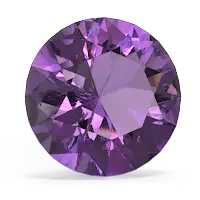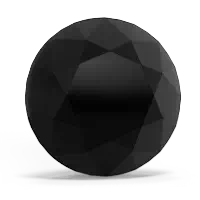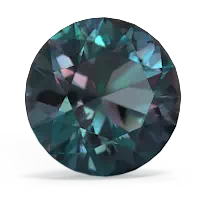


The birthstone of February, amethyst makes an appropriate and affordable gift. A pair of amethyst earrings in a stud or dangly design are always popular and always in style. A pair of black onyx earrings are an affordable and elegant gift. Always appropriate and always in style, black onyx should be in every jewelry box. A pair of created alexandrite earrings is like two gifts in one. Blue-green by day, and purple-red by night, the color change of this gem is sure to please.